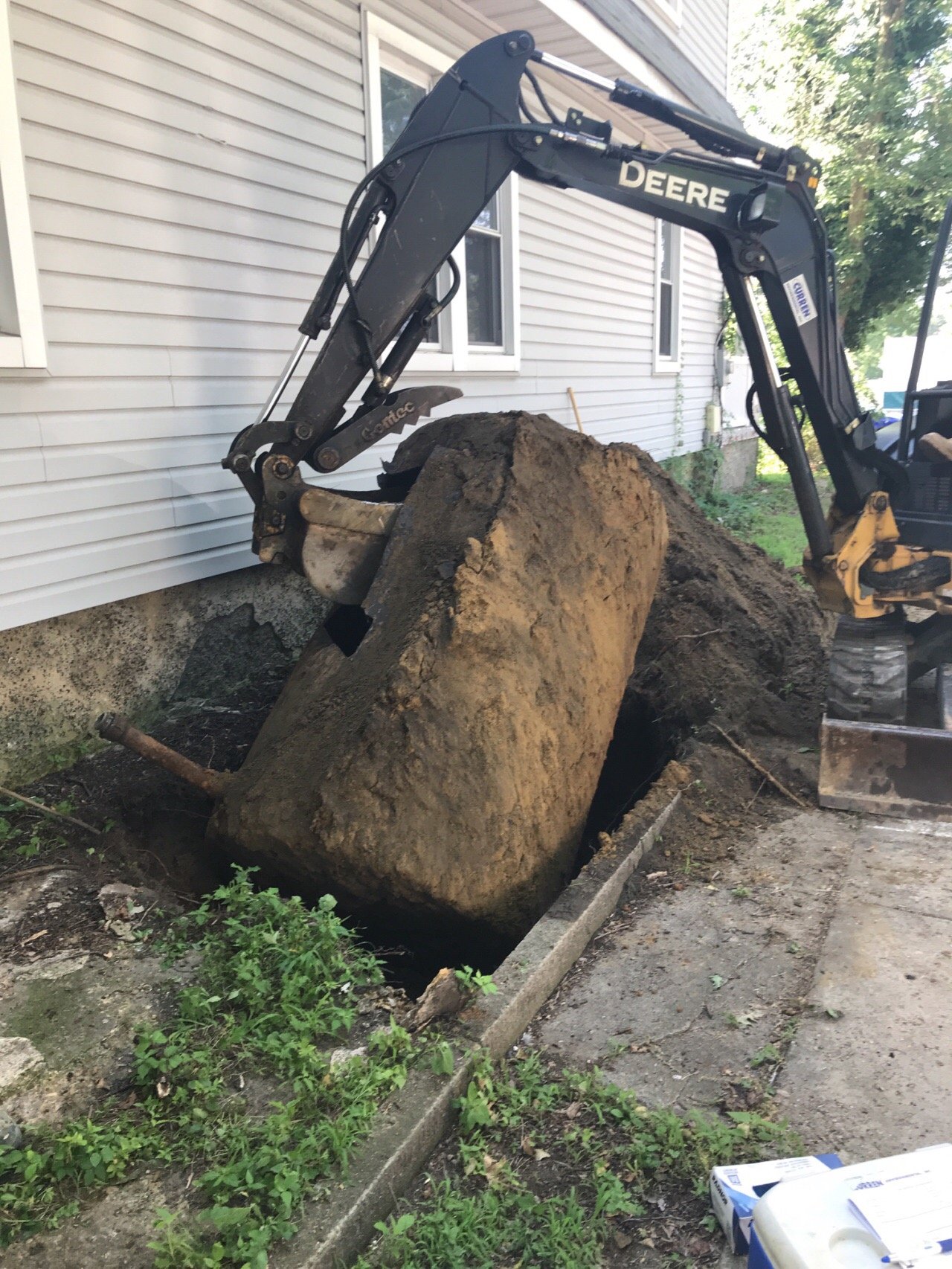If you are involved with an oil tank removal project, it is probable your first tank removal and likely your last. The odds of you making the best decision are slim. Let’s agree that the best tank removal is one where the tank does not leak and you don’t have to remediate.
That said, you could expect a cost for tank removal on average to be about $1,800.00. This cost entails the time to get permits, equipment, and labor to excavate the tank, trained personnel to cut open and clean the tank, oil recovery, tank removal, soil sampling, backfill material, and labor, and ultimately a report from the company so you can document the tank removal. The tank report is completed weeks after removal and is performed in an office utilizing the notes and data collected from your site. Sounds like a lot for $1,800.00, well it is.

Let’s talk about what makes your tank removal the best tank removal.
Your cost is close to the average cost of $1,800.00. Why, well the firm that sells these services has to do the work at a market rate where they can make money. Otherwise, they are offering the work at a loss, with the plan that they will make the money on the backend, which is the remediation and even small remediation can cost over $8,000.00. You get what you pay for, remember that.
If you buy a house that had an oil tank, you want to know that the tank did not leak. The only way to know that is if you have testing completed. Being the owner of the tank you may think you do not want to have testing done, or else you may find a problem. After 25 years of dealing with tanks the bottom line question, everyone wants to know is if the tank leaked. Buyers and sellers because that answers can make or break a real estate transaction. Bottom line tank soil samples when the tank is removed
Why do many contracts for tank removal not include soil sampling? Short answer, it is cheaper. Soil samples cost $120.00 on average and with two soil samples being the average number acquired sampling can raise the cost by $240.00, plus the time to write a report that talks about the test results. Look, you are removing an old buried metal object, you are fooling yourself if you don’t think that rust and extensively have not occurred to the tank. Your low-cost tank removal company is counting on this and will be happy to give you a cost to remediate the tank once contamination is discovered.
Why do many contracts not include a report of the tank removal? Cost again is the culprit. If you write a report you need someone present during tank removal that will be taking notes, photos, and soil samples and will eventually sit behind a desk to type a report. That all takes time and there is a cost involved. The bottom line make sure the contract includes a report.
Tank removal site assessment soil samples when acquired for independent laboratory analysis provide quantitative, not qualitative data. New Jersey and Pennsylvania have one comparative standard for number two heating oil in the soil and that is by laboratory analysis. Visual, oil water agitation, or olfactory evaluations have no standards so you have no foundation to lay an opinion.
Residential tank removals do not specifically require that you obtain soil samples. This conflicts with the interest of a purchaser (mortgage or insurance underwriter) for a site when hard data is requested. Legally you do not need to test, if a buyer wants to test prior to purchase it is their due diligence and hence their cost. Obviously, it is less expensive to acquire samples from an open excavation at the tie of removal, as opposed to post-removal and backfilling.
What is the best tank removal? The best is one where testing and a report are provided as part of the tank removal. It is what is required for commercial sites, so why wouldn’t you do the same for a residence?

